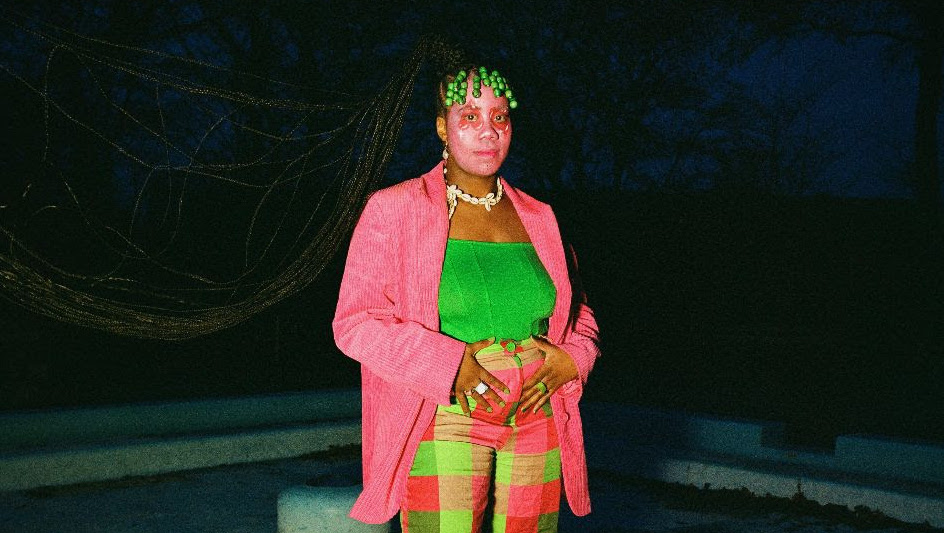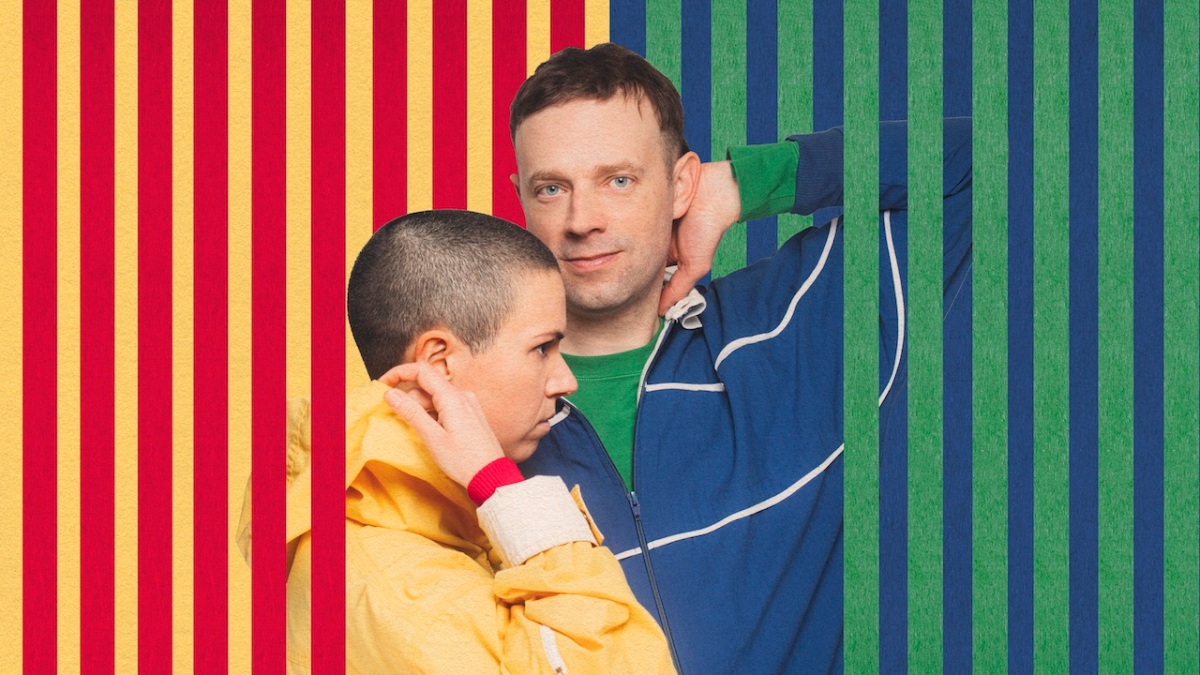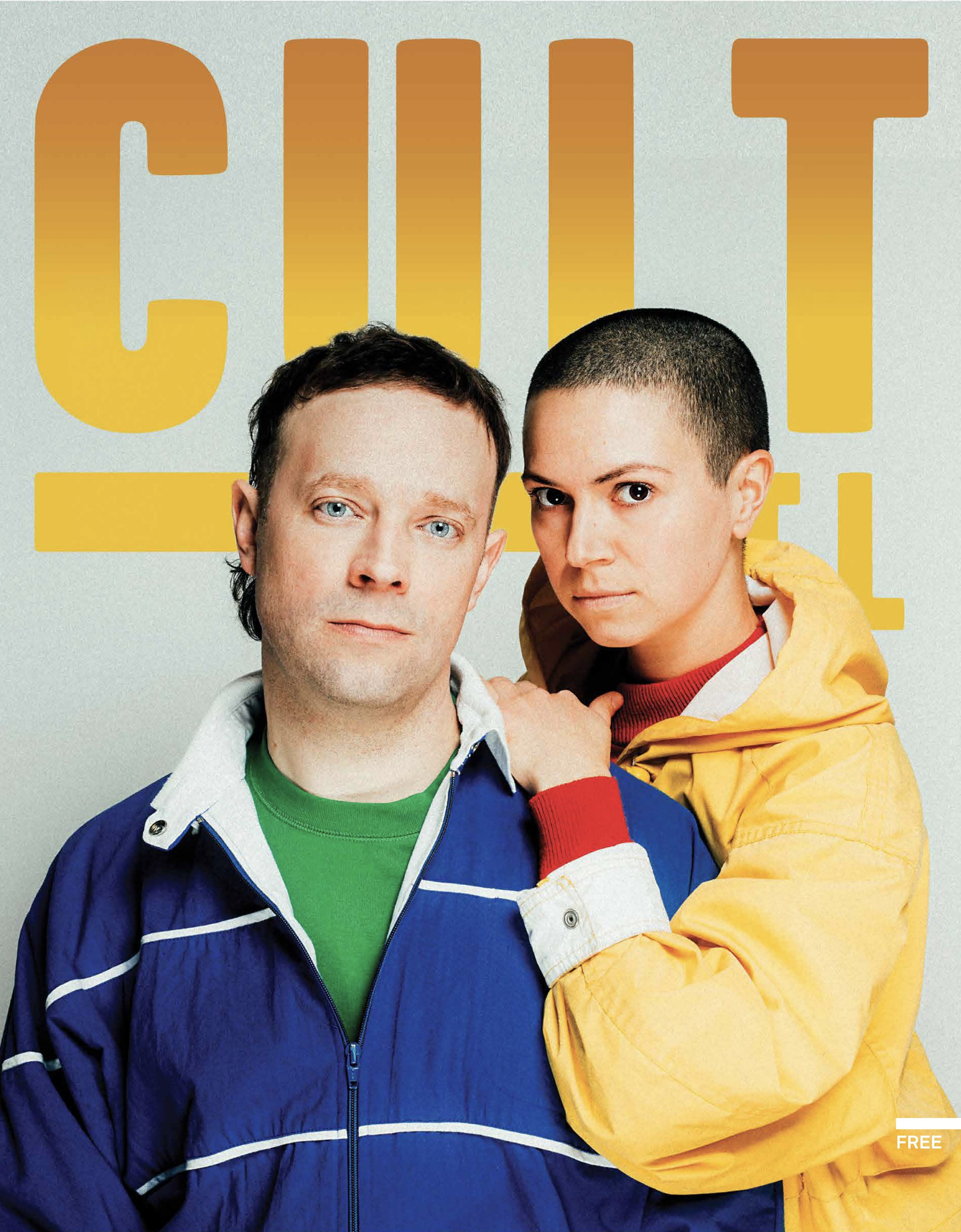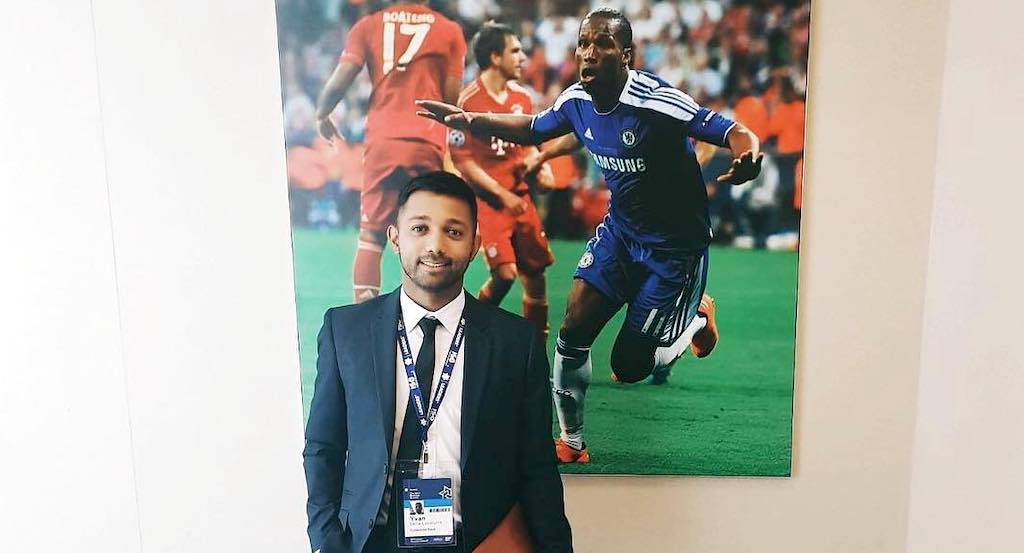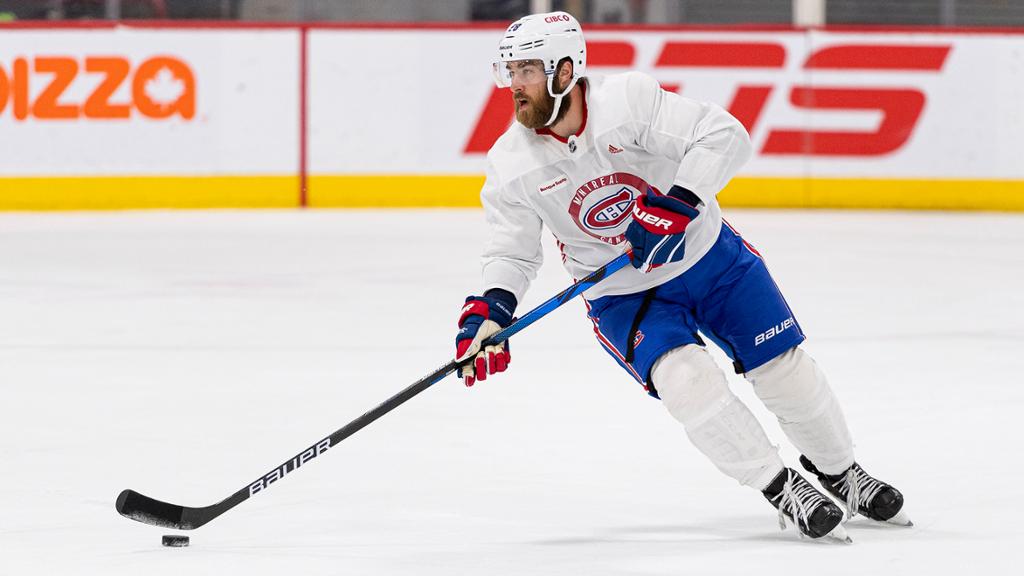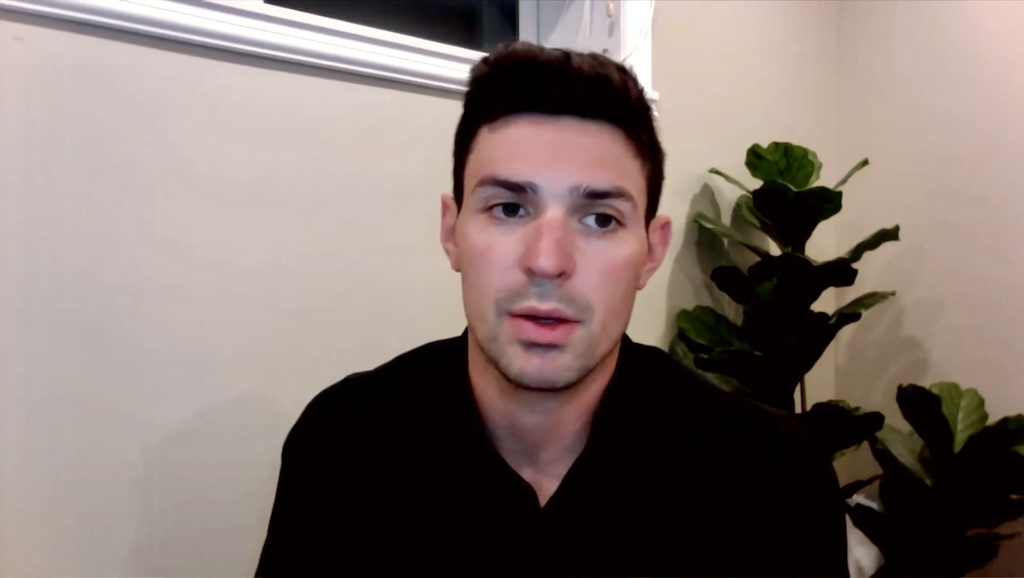The producer and DJ will return to Montreal from her new home in Amsterdam to launch the record and accompanying film this spring.
You know what they say: you can’t rush greatness. Aïsha Vertus, better known as Gayance (the Haitian Créole word for “joyfulness”), has officially released her long-gestating debut album Mascarade.
The album, out today on London-based label Rhythm Section, comes after she’d released several singles starting in March 2021, leading to her self-releasing her first EP, No Toning Down, in October of that year. Having DJed for roughly a decade, Gayance taught herself how to produce on Ableton Live during the earlier stages of the pandemic.
Musically, Mascarade is a groovy, blissed-out mishmash of genres from all corners of the globe. Traces of styles like house, funk, soul, jazz and hip hop can be heard throughout, as well as various genres of African, Caribbean and Latinx origin. A relatively short listen at just under 30 minutes, the album very much lives up to her self-described sound of “jazzy-house with Brazilian spices so you can make out with your crush.”
Admittedly, the Haitian-born, Montréal-Nord-raised producer/DJ hadn’t been thinking too much about it in the weeks leading up to release day, instead focusing on relaxing and resting before jetting off to Brazil for two weeks.
Mascarade was also completed in April of last year, when it was mixed and mastered. “There’s nothing to do. People can just listen to it. That’s fine. It’s not mine anymore,” she says while letting out a huge laugh.
Though she’d been splitting time between Montreal and various other places in the world (specifically countries like Belgium and Brazil), Gayance is currently based in Amsterdam, where she spoke to Cult MTL from. “I was tired of going back and forth,” she tells us about the physical and financial toll of frequently travelling between Montreal and other countries.
“Every month since last spring, I was doing one month there and one month here, over to Europe and then back to Canada. It was very fun. I was very grateful to be able to do that. But it was starting to cost a lot, and (the jetlag) cost a lot for my body. I was just like, ‘You know what? I might as well just base myself here.’”
While she attributes the album’s delay partly to how much time it took to get pressed, Gayance also had a parallel project on the go that would contribute to the hold-up. That project? Shooting a music video for the single “Nunca Mais” (directed by Montreal’s own Maïlis), which took a bit of a detour before production began.
“We had a crazy idea, and then there was a very key member of the team who could not attend the shoot that day,” she adds. “Kind of Mercury retrograde type shit. Then, we had to cancel the shoot. We were like, ‘What?!’ We still had some funds to do it.
“Before the pandemic, I was planning something with all my friends for my 30th (birthday). Everybody would go to Brazil together, but it obviously never happened. But I was like, ‘Listen, I’m going to do it regardless of the sky falling apart. I just want to go to the forest there.’ Then Maïlis was like, ‘You know what? We could just follow you.’ We took two weeks, we wrote something, and then I flew. I was scouting for a month. The month after, she came with a camera crew. We came back with 10 days of shooting, like 16 hours. We were like, ‘Let’s just continue (the shoot) throughout every season in Quebec.’”
In Gayance’s words, Mascarade is the story of her 20s. As with anyone’s 20s, many a life lesson can be learned, and many a memory — good or bad — can stay with you forever. For Gayance, her 20s were spent learning what her boundaries were, and how to check them — something she admits she hasn’t been great at doing. (This theme also directly influences the standout track “Shore Apart.”)
“I didn’t know what boundaries meant, really,” she continues. “I wasn’t crossing people’s boundaries, but I let a lot of people get into mine. That’s why I had a few burnouts. Your body has to recuperate from this, and sometimes it takes a long time. It can take you three months to fully recover. It’s not cool.
“(I’ve learned) so many things. We could talk about life for hours. To me, it’s hard to talk about those things, so that’s why I do art instead! (laughs) It’s more subjective, and people can also interpret it in their own way… For me, what was interesting with the visual part of (the album) was all these people working on it and were also bringing their own story into this. Everybody can relate to those emotions in some ways. I just want people to feel validated.”
One song in particular, “Moon Rising (10 Years),” took the shortest amount of time to complete for the album (the title track took the longest), and has a very personal backstory serving as its primary influence. Gayance’s late grandfather led a choir group, and was one of the first to bring congas into churches in Quebec, an instrument that features heavily in the track. “It was kind of an homage, but it’s also a spiritual song,” she says.
Gayance would also get to play a number of festivals across the pond last summer, including Down the Rabbit Hole in the Netherlands last July, where she got the chance to meet none other than Erykah Badu. “I had the most childish reaction ever,” she admits.
“I was closing the stage at 4 a.m. or something. Then, they gave me the hotel (room) for a longer time. I was like, ‘Yo, I really want to stay and watch Erykah Badu perform.’ I didn’t care about (meeting) her or whatnot. I just wanted to see her perform.
“Because we were backstage and we’re artists, I saw her. I was like, ‘Oh my God!’ I was just emotional. I was like a kid. Also, I was kind of ashamed afterwards because I was like, ‘Wow, she’s just a human — come on, Aïsha!’ (laughs). She was just like ‘I see you, girl,’ just giving props.”
Mascarade also features some equally eclectic local artists in Hua Li and Janette King, who both appear on “Clout Chaser’s Anthem,” made together during a PHI Centre residency in Sainte-Adèle in the Laurentians; Judith Little D, who sings on “Lord Have Mercy” and “Moon Rising (10 Years)”; and electronic trio Raveen, who feature prominently on “Shore Apart” “Lord Have Mercy” and the title track — the latter of which Gayance says is a critique of white people.
“I’ve known (frontman) Éric (Séguin) for eight years now,” she says. “We hadn’t done musical projects together, but we’re always musically connected in some ways, and did some parallel collaborations… With (the title track) ‘Mascarade,’ if you think about the lyrics, I feel like it was important to have someone like Éric singing it with me. It really brings out the intention of the song.”
Though Mascarade is her first proper album, Gayance has been a fixture in Montreal’s scene for what feels like a lifetime. She first started DJing in 2013, and has also been involved with POP Montreal (working there as a music programmer) and the PHI Centre (where she curated a hip hop exhibition). Gayance has worn many other hats during that time as well, having hosted a mix series entitled WITCHES BREW on n10.as, and doing music journalism work for outlets like Radio-Canada, VICE, The FADER and Red Bull Music Academy.
She also co-directed and produced PIU PIU, a 2012 documentary spotlighting the then-bubbling Montreal beat scene comprised of local rappers and producers. That doc includes cameos and/or interviews with the likes of Poirier, High Klassified, Tommy Kruise, KNLO, Vlooper and, most notably, Kaytranada (back when he still used his old stage name, Kaytradamus).
Spending such a long time deeply involved and invested in Montreal arts and culture means seeing significant change and evolution happen before your eyes, as well as building connections with various local movers and shakers (she mentions Narcy and Stina Baudin as examples). This is despite certain aspects of the scene — government funding, more specifically — still leaving something to be desired.
“There are so many people I’ve met from that period who are still doing amazing things,” she says. “The thing that I’m very sad about sometimes is that I feel like the government should give more money to initiatives brought up by those artists. Those people have something to say, and we should have all the resources to do and say what they have to do, and do what they have to say.”
Having spent so much time internationally in recent years, Gayance’s travels in Europe and Latin America haven’t just presumably helped her rack up plenty of Air Miles, but they’ve taught her about life and music in ways she might not have necessarily learned in Montreal.
“People’s lifestyles are more relaxed. It taught me to chill a little bit, also,” she says. “When you grow up in North America, there’s something about the fast life: you go home, you work, you don’t even eat because you’re working. I feel like that’s much more praised in North America. But in Europe, it taught me to relax a little bit. People were more chill.”
Despite her time spent thousands of kilometres away from the city that moulded her, Gayance wants to protect Montreal’s nightlife in whichever way possible. “They’re trying to shut down the nightlife everywhere, low-key, but it’s not as intense as it is in Montreal,” she adds.
“Our nightlife is very important, because this is literally the essence of the city. This is why the city is what it is during the daytime, you know what I’m saying? Montreal is Gotham City! (laughs) I would love to bring some ideas that I’ve seen in Europe to Montreal. We have a very good nightlife, and if the city wasn’t doing some crazy shit to the people, maybe it could strive a little bit more and have even more exciting things.”
The remainder of this year will be a busy one for Gayance, as she gears up to play festivals (including Horst in Belgium and Dekmantel Selectors in Croatia), perform with a live band and release a companion short film for Mascarade. She hopes to have the film — shot in both Canada and Brazil — shown in festivals and “have its own life, as well.” There’s no exact release date for it yet, as she’s still trying to find a distributor.
Gayance will also be making her return to Montreal — full band in tow — on May 20 for Mascarade’s release party at the PHI Centre, where she’ll also be showing her short film. She’ll make a stop at Sans Soleil Bar beforehand to chill with friends she hasn’t seen in a while (“I fucking love this place,” she says about the latter).
As far as what Mascarade says about where Gayance is currently at as an artist, her answer is pretty simple. “I’m just trying some shit,” she says. “That’s what I would say. I’m still experimenting — with sounds, and the whole craft of producing in general.” ■
This article originally appeared in Cult MTL. For more on Gayance, please visit her Linktree.

